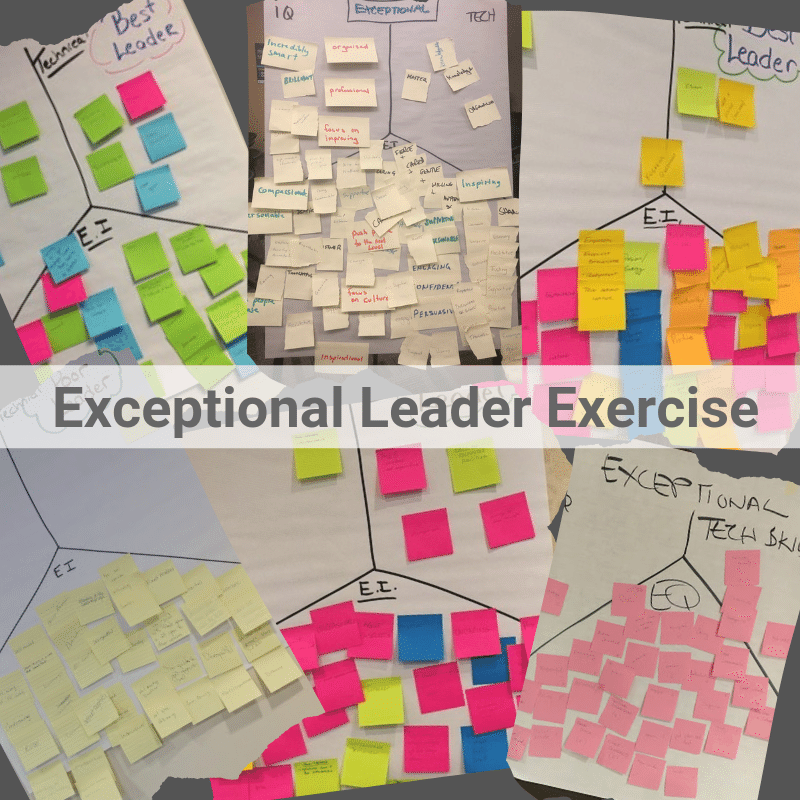Emotional Intelligence is the defining characteristic of exceptional leaders
Over the last twenty years our organization, the IHHP, has delivered keynotes and training to tens of thousands of people and hundreds of organizations. The list of organizations we have worked with includes many of the world’s leading companies and institutions as well as a great number of small and medium-sized clients.
Asking people to reflect on exceptional leaders as a source of motivation to become one themselves
We teach people the skills of emotional intelligence. But to teach someone something, they must first be motivated to learn it.
That is why we begin our keynotes and classes by asking people to reflect upon an exceptional leader they’ve encountered in their careers and to write down a few of the most important characteristics of this leader on post-it notes. Next, we ask them to do the same for an unexceptional leader.
We ask people to classify those characteristics of leaders under one of three areas of competence
- IQ – how smart that leader was
- Technical skills – how well that person knew the details of his/her job or that of their team members, or
- Emotional Intelligence (EI) – how people felt as a result of that leader’s characteristics.
We then ask participants to go to an easel that has a pre-made chart with sections for each of the three categories and place their post it notes in the corresponding spot.
Every time we administer this exercise, no matter the industry, the level of management or the geography, the results are very similar. EI characteristics are chosen as the overwhelming majority (over 80%) of those that define exceptional and unexceptional leaders. Many participants find that all of the characteristics they wrote down fall under the EI classification.
(At the bottom of this article are several pictures from some classrooms and keynotes that demonstrate this.)
Why is this exercise important to the learning?
This exercise serves two purposes.
First, it gets participants to realize through their own introspection that they themselves have judged EI skills in leaders in their lives as those that made the leaders exceptional or unexceptional. They can also see that this has been the same for everyone around them.
Second, there is an “aha” moment where they realize that if they too want to be an exceptional leader and get the results that exceptional leaders get, they must learn and apply the skills of emotional intelligence. No amount of technical skill or IQ will be a substitute.

Corporate clients of IHHP include Intel, Microsoft, Coca Cola, Goldman Sachs, Ford, Citigroup, Johnson & Johnson, Boston Scientific, Volvo, The Orlando Magic, Verizon, Marriott Hotels, Blue Cross Blue Shield, UnitedHealth Group, and Allstate Insurance.
Some institutional clients of IHHP include: US Army, US Navy, CIA, Federal Reserve.

